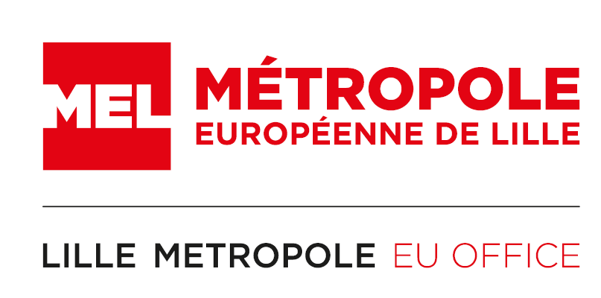
Since 2022, Lille Metropole has been taking part in the partnership project Dramatically Reducing Embodied Carbon (DREC) led by the CNCA and financed via the Laudes Foundation. DREC aims to help cities and metropoles reduce CO2 emissions in the construction sector, including embodied carbon, while also increasing the use of bio-based materials.
The first phase of the project enabled the drawing up an audit report on the territory of Lille Metropole, carried out by ‘Oneclick’, and the organisation a cooperation approach with the metropolitan ecosystem. This cooperation with local stakeholders took the form of a cycle of 3 workshops organised with the support of our local partner CD2E. Workshops were organised on the following topics:
Bio-based materials under construction and renovation ;
Re-use and renovation ;
On the building integrated in low-carbon districts and adapted to the impacts of climate change (this workshop was led by Franck Boutté, Grand Prix de l’Urbanisme 2022).
A white paper (available via the following link, in French) was produced at the end of this process.
In parallel, the DREC project took place at national level: Promodul has facilitated several meetings with the French metropolitan partners of the DREC project (Nantes Métropole, Bordeaux Métropole and Lille Metropole). Support was provided in the exchange of expertise and the needs/issues of metropoles were communicated to national decision-makers. This work has also given rise to a written production available here (in French).
Finally, at the European level, 11 metropoles participated in the project (Amsterdam, Bordeaux, Glasgow, Helsinki, Lund, Nantes, Stockholm, Tampere, Turku, Valladolid and Lille Metropole). Several seminars and site visits were organized between these metropoles, including one in Lille Metropole in June 2023 which enabled the visit of several flagship projects of renovation of Lille Metropole such as Blanchemaille and Rives de la Haute Deûle.
In parallel, meetings were organised with the European institutions. Discussions revolved around the challenges of reducing the carbon footprint in the construction sector, particularly in the context of the revision of the Energy Performance of Buildings Directive.
At the end of 2024, Lille Metropole decided to continue its participation in the DREC project as part of a new phase launched by the CNCA with new funding provided by the Laudes Foundation and ‘Built by nature’.
The objective of this second phase of the project is to deepen the axes/themes dealt with during phase 1 of the project. This includes acquiring in-depth expertise and practical know-how on how to develop and implement policies to decarbonise the built environment.
Several themes have been identified for this 2nd phase:
Innovative approaches to strengthen the use of bio-based materials
Better consideration of the life cycle of buildings or the reinforcement of renovation compared to demolition and new construction
The promotion of the reuse of materials.
In line with its circular economy strategy, which includes an axis on construction materials and building on exemplary projects such as Blanchemaille, it is mainly on this last aspect that Lille Metropole continues to engage in the DREC project.
A mission will be carried out with the cabinet Cycle up. As a first step, it will make it possible to carry out a detailed analysis of the regulatory context of re-use at local, national and European levels, including insurance issues and certifications. Next, a European benchmark will be made with two metropolitan territories that are comparable to Lille Metropole. The final step is the collection of contributions for the development of a metropolitan strategy for the reuse of materials.
This second phase of the project will once again bring together a dozen other metropoles, in order to share expertise and develop solutions to common challenges. Some of these metropoles were involved in the first phase of the project, while others have only just joined the partnership.

